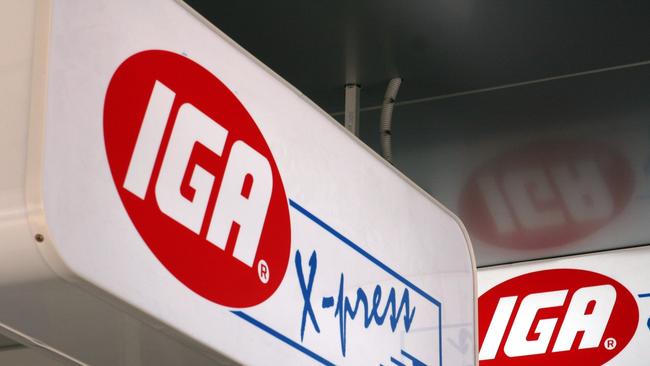Coronavirus: bosses call for wages freeze, or jobs will go
Employers including IGA, FoodWorks and Mitre 10 have called for a one-year wage freeze to be imposed on retail workers.

Employers including IGA, FoodWorks and Mitre 10 have called for a one-year wage freeze to be imposed on retail workers, warning the coronavirus crisis could persist for at least 12 months.
Master Grocers Australia, which represents 4000 independent supermarkets, liquor, timber and hardware stores employing a total of 120,000 workers, said the “destructive effects” of the coronavirus, the impact of the bushfires and past annual minimum wage rises justified the pay freeze.
In a submission to the Fair Work Commission’s annual minimum wage review, the MGA says the pay rates in the retail and timber industry awards should be frozen for 12 months from July.
The annual commission decision directly affects 180,200 workers paid the national minimum wage rate and up to 2.2 million workers paid an award rate.
Workers employed by MGA members — include Cellarbrations, The Bottle-O, Duncan’s, and Home Timber and Hardware — are generally employed on minimum award rates.
While supporting a “limited increase” in the minimum wage order, the MGA says a freeze in the award rates would allow the independent retail sector to survive in extremely difficult times.
It warns that increases in the award rate above the Consumer Price Index will lead to staff losing hours of work, and says separating the two wage rates is necessary “because the MGA anticipates the COVID-19 crisis will persist for at least 12 months and the negative economic effects from this crisis will fall disproportionately on small business”.
“It has been suggested that wages should not be linked to the outbreak of the disease, and that may well be the case. But what is more important is the overall effect on businesses as profits decline, staff are unable to work and possibly stores (are) forced to close,” the submission says.
“This will undoubtedly affect the economy as a whole and therefore consideration must be given to the total economic effects of COVID-19 on the future of all industries. Now is not the time to be considering increasing wages.”
It says an annual increase similar to the 3 per cent rise last year would have “devastating consequences”, particularly for employment. “In isolation, a 3 per cent or 3.5 per cent increase does not seem to be overly high, but when applied to the various penalties that exist in the awards, the cost eventually becomes exponential and therefore, eventually, unsustainable,” the submission says.
“We are seeking that although the FWC may see the need to increase the minimum wage rates for certain categories of employees, that consideration is given to not increasing the award rates, not just because of the further expense of a higher wage rate and its consequences, but also because of other factors now pressing on the economy, including the results of the bushfires and the destructive effects of the coronavirus.
“We therefore urge the FWC not to increase the award wage rate in 2020, to allow independent supermarkets, liquor, timber and hardware stores to remain viable and serve as an important source of employment in Australia.”
Meanwhile, thousands of casual workers employed by Kmart, Target and Officeworks will be eligible for up to 14 days’ special leave pay if they are unable to work due to the coronavirus outbreak.
The employees of the Wesfarmers-owned businesses join casual workers at a growing list of companies, including Telstra and Woolworths, who will receive leave if impacted by coronavirus.
Wesfarmers managing director Rob Scott said the businesses recognised the important role they had to play in continuing to serve customers and the community while contributing to the public health response to coronavirus.
“Our businesses are letting their team members know that they are committed to supporting both permanent and casual employees and they will not be disadvantaged because of their employment status if they are unable to work because of public health requirements related to coronavirus,” he said.
Casual team members will be paid for a maximum of 14 days based on their agreed and rostered hours for that period.



